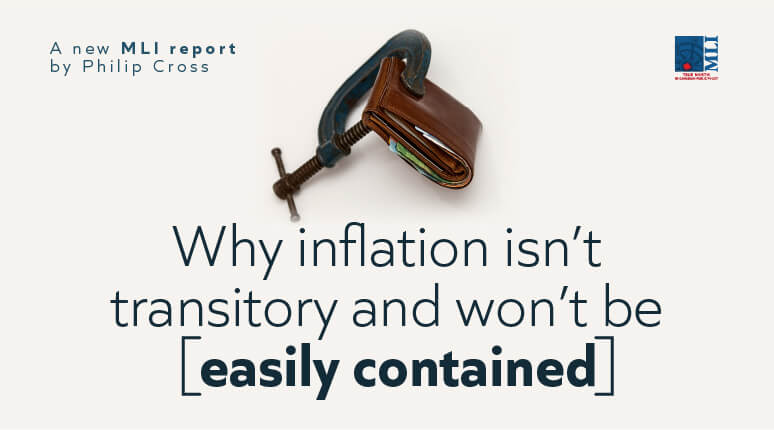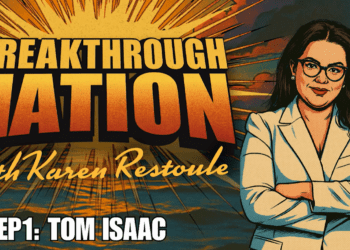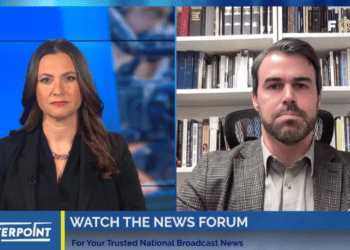OTTAWA, ON (November 26, 2021): Most Canadians have become painfully aware of the sharp increase in prices during the pandemic. And it appears that inflation is here to stay. As Bank of Canada Governor Tiff Macklem has recently acknowledged, inflationary pressures are “stronger and more persistent than expected.” However, this is no surprise to MLI Munk Senior Fellow Philip Cross, who has been warning about persistent inflation for months.
In MLI’s latest report, titled “Why inflation isn’t transitory and won’t be easily contained,” Cross argues that today’s inflation is not a temporary phenomenon, and he points to the role of widespread price pressures and government interventions.
Shortly after the pandemic began, Canada’s housing market saw an unprecedented surge in prices that spread beyond the big cities, and the automotive sector quickly followed suit. By late 2020, Canadians saw a sharp increase in many commodity prices. Now, as Canada’s beleaguered economy emerges from the COVID pandemic, it faces a significant and widespread rise in consumer prices when it comes to commodities like food, oil, and gas, which face the prospect of sustained upward pressure.
Worsening backlogs in the global supply chain and labour shortages, which have led to shortages in everything from semiconductors to truck drivers and service workers, have only contributed to inflation. Indeed, as the author notes, these shortages also mean inflation is understated, as Canada’s Consumer Price Index was designed to measure prices in an economy in which goods and services are abundant.
Government actions in the pandemic have also significantly distorted the economy, with a particular impact on demand as opposed to supply. According to Cross, “the extreme policy response to the pandemic introduced numerous distortions into the economy that are persisting, and in some cases, worsening with time. These distortions are manifest in the unprecedented increase of household income during a recession, dislocations in the housing and labour markets, the mismatch of sectoral demand with industry supply, and heavy borrowing from debt markets.”
Moreover, as Cross argues, inflation is the first manifestation of Ottawa’s inability to agree on how to pay for the massive debts incurred over the past decade. These debts substantially increased during the pandemic with government spending soaring to record levels.
Canadians can and should remain confident the Bank of Canada will eventually react to higher inflation. It is critical to the Bank’s mission to take decisive actions to avoid inflation becoming embedded in Canada’s economy. The longer central banks delay responding, the larger the increase in interest rates will be and the greater the economic pain for an economy already saddled with high debt. Financial markets expect central banks will raise interest rates starting in 2022.
But Cross warns that containing inflation may not be a simple or short process. Even if global supply chains return to normal, shortages of labour, shifts in housing demand, and higher commodity prices require more than a brief nudge in interest rates.
“Most fundamentally, governments must find a way to fund their debt, now that central banks are ending purchases of government debt, or the upward pressure on interest rates will intensify,” writes Cross.
To read the full paper, click on the button below.
***
Philip Cross is a Munk Senior Fellow at the Macdonald-Laurier Institute. Prior to joining MLI, Mr. Cross spent 36 years at Statistics Canada specializing in macroeconomics.
For more information, media are invited to contact:
Brett Byers
Communications and Digital Media Manager
613-482-8327 x105
brett.byers@macdonaldlaurier.ca







